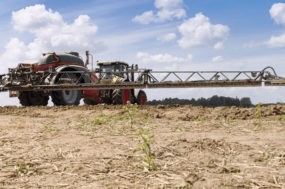Generally, if there are at least 50 full-time employees, the farm business is considered an "applicable large employer" subject to the employer mandate rules.
However, special rules exist that must be used to calculate the number of full-time employees. These special rules require the farming business to take into account not only those employees that are actual full-time employees, but also part-time employees. The total number of hours that the part-time employees work is used in a formula that determines how many "full-time equivalent" (FTE) employees that the part-time workers are composed of.
The actual full-time employees and the FTEs are added together to determine whether at least the 50 full-time employees exist that are necessary to subject the farming business to the mandate and possible penalties.
Complex rules exist in connection with the time frame that the employer may use as the counting period for counting employees. A special rule exists for seasonal workers. Generally, if the only reason a farming business exceeds 50 employees is because of the work of seasonal workers, the farming business will not be considered an applicable large employer as long as the period of time over which the full-time employee count exceeded 50 was 120 days or less in the year.
For farmers or farming families owning more than one business, entities are aggregated for purposes of counting employees.
The employer mandate rules do not require a farming business to offer health coverage to full-time employees. However, there are penalties for a farm business that is subject to the mandate that either does not offer coverage or which offers coverage that does not meet certain minimum standards. These penalties are not tax deductible. Farm businesses subject to these rules will need to file a detailed report each year to the Internal Revenue Service, which will be used to determine the amount of any penalty.
No farming business or other type of business will be subject to any penalty for 2014 because the requirement to file this detailed report, which triggers the penalty, has been delayed until Jan. 1, 2015. The first report will be filed by farming businesses in early 2016 in connection with the 2015 tax year.
Individual mandate
Effective Jan. 1, every farmer will be required to maintain "minimum essential coverage" (MEC) unless they qualify for an exemption. Among the exemptions available is an exemption for lower-income farmers with incomes low enough that a return isn't required, an exemption for hardship (defined using various grounds) and the lack of ability to obtain affordable coverage (meaning generally that the farmer would be obligated to pay more than 8 percent of household income for health insurance). FG
This originally appeared in the University of Illinois’ FarmdocDAILY.
—From University of Illinois









